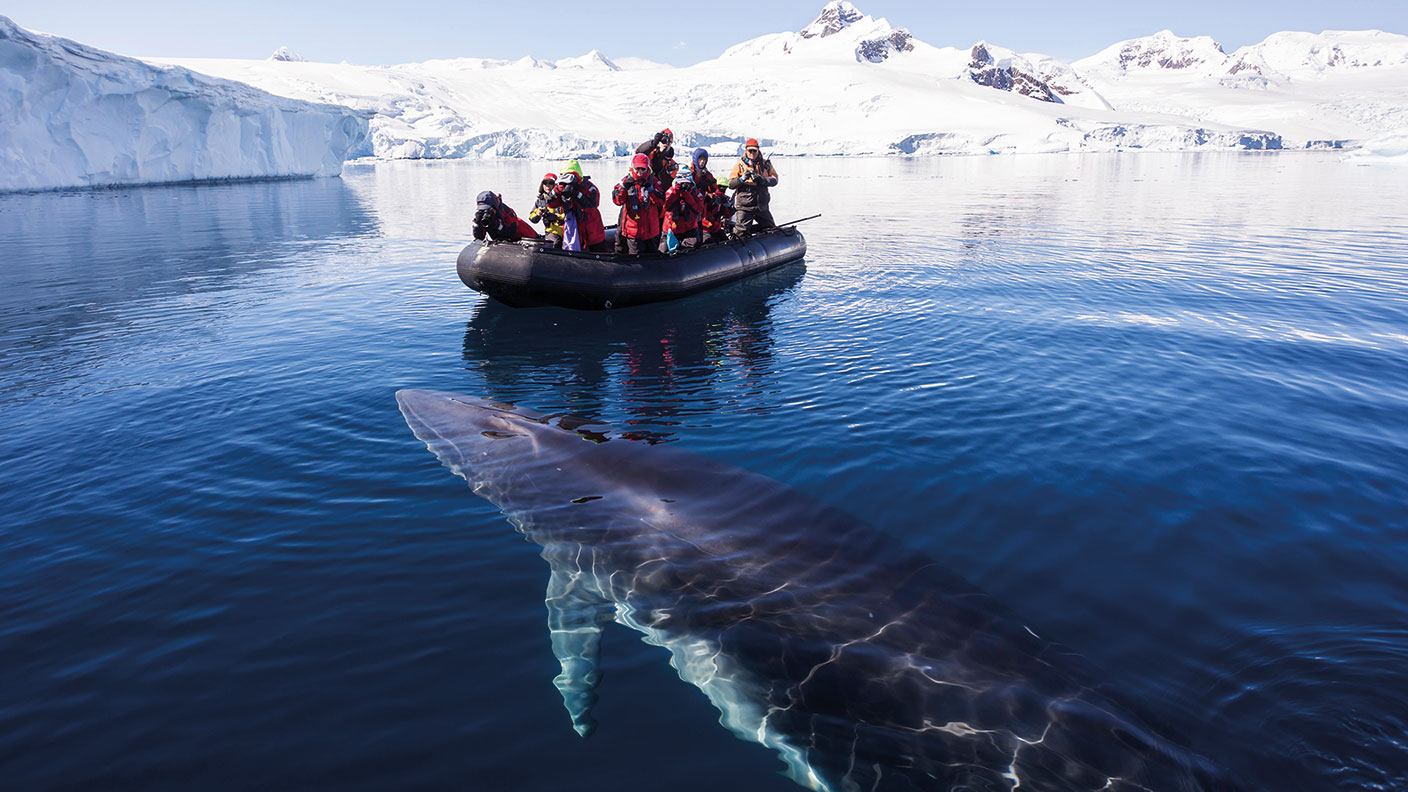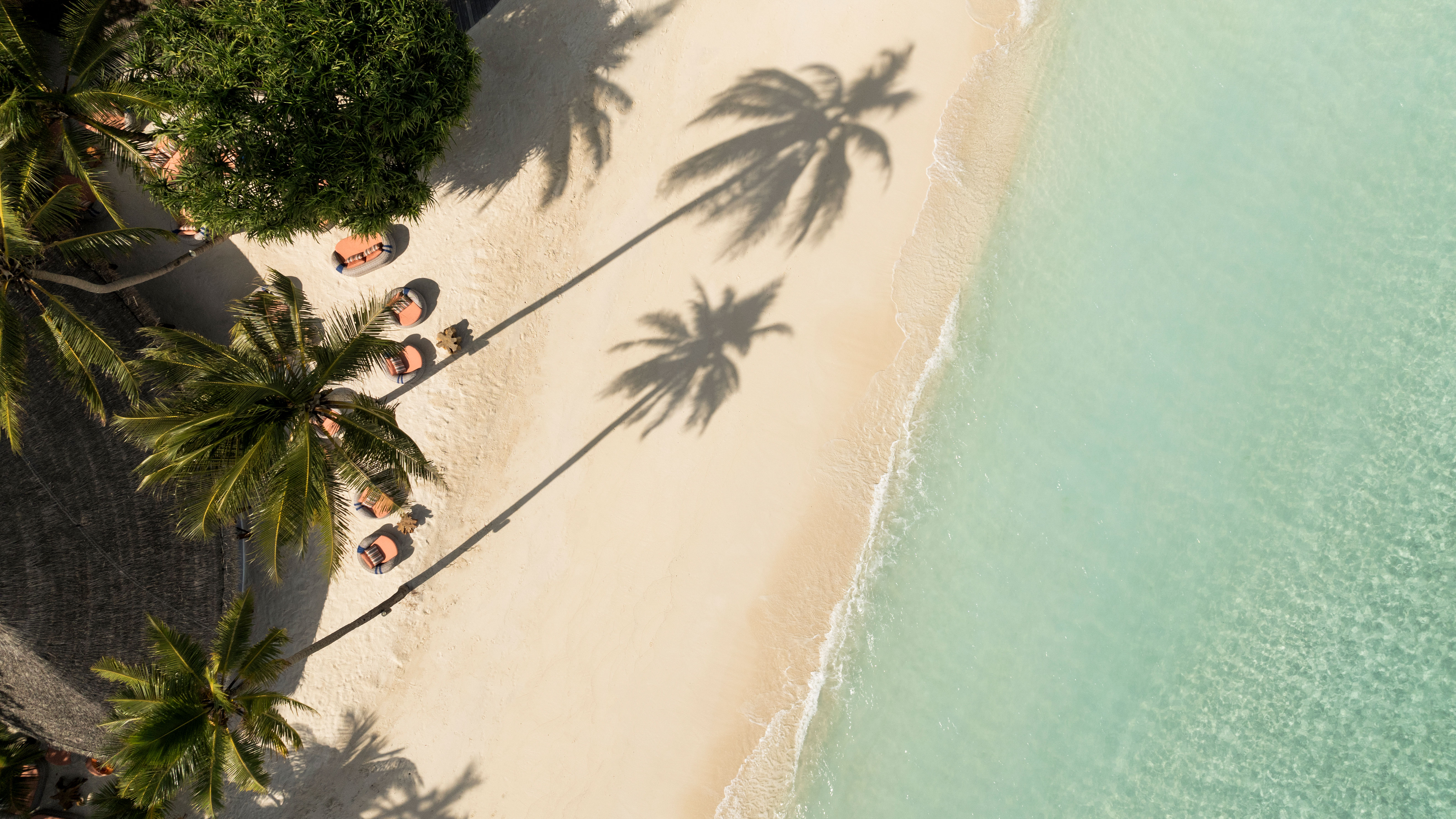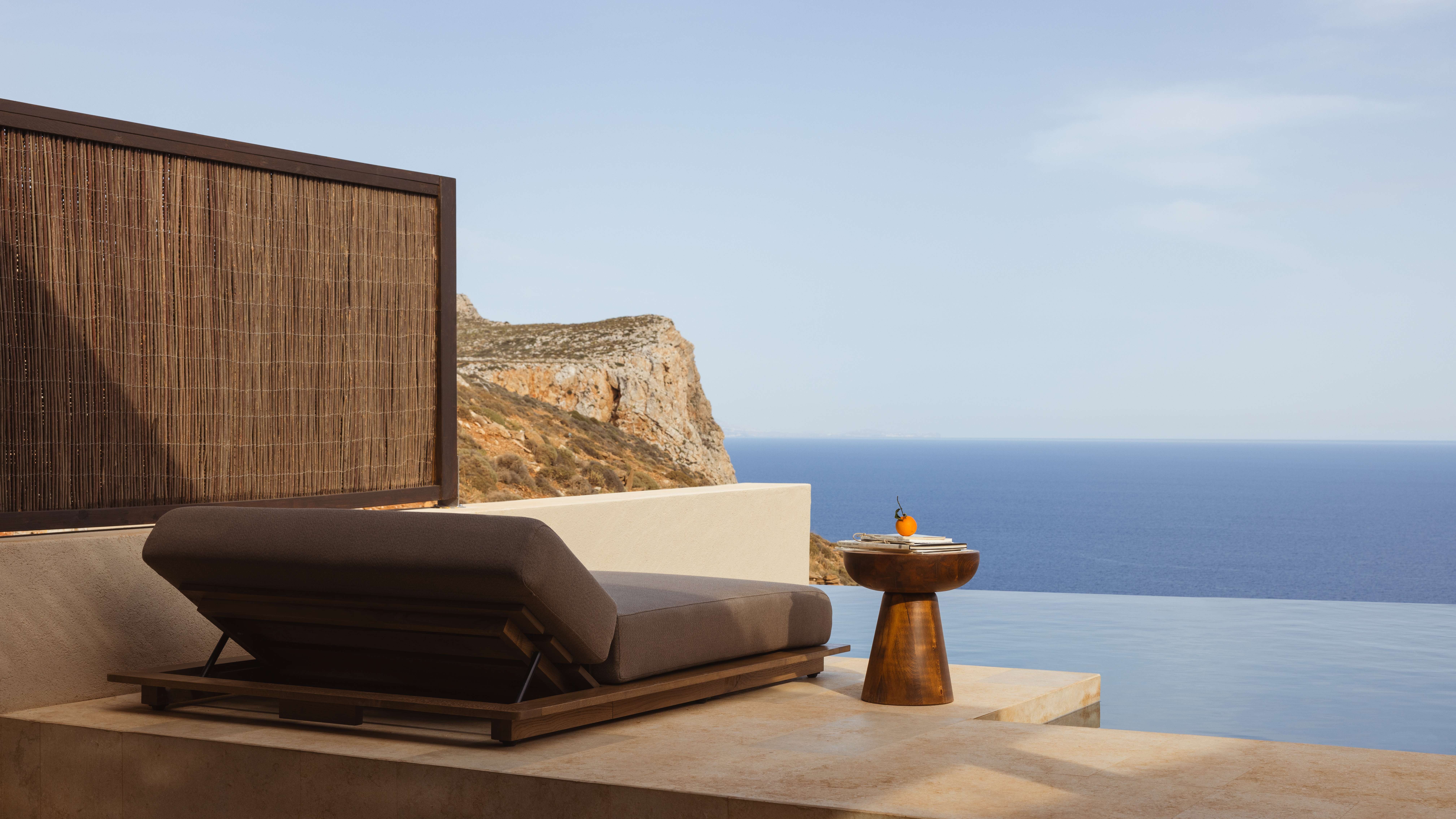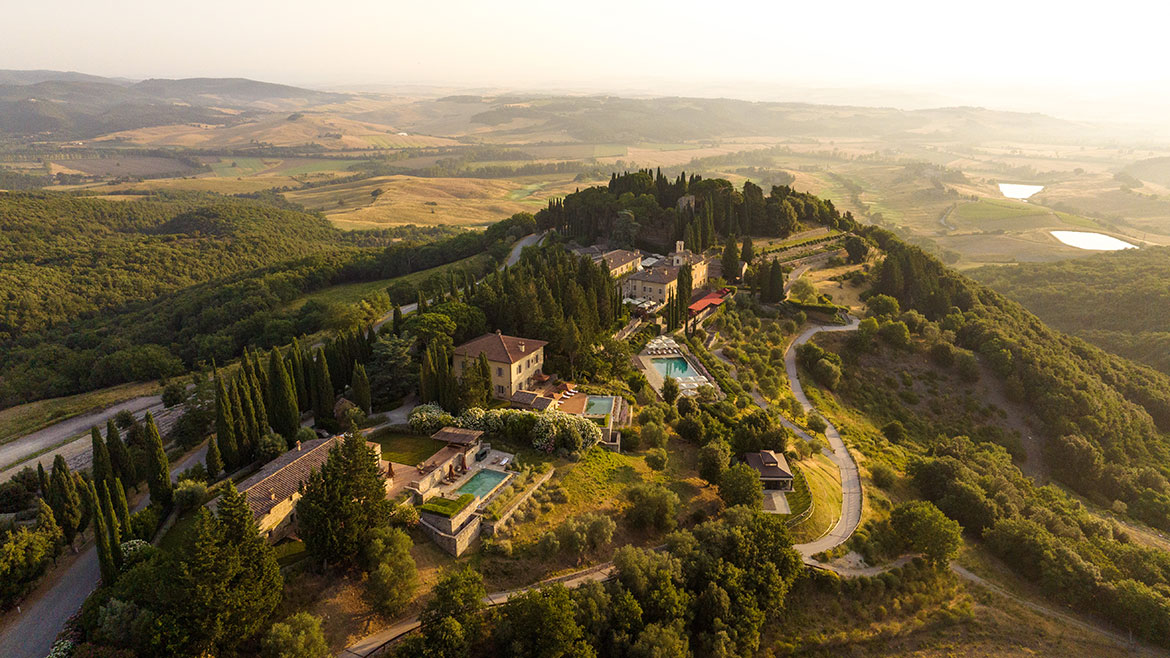A cruise to Antarctica, the last pristine wilderness
A cruise to Antarctica will change the way you see the world. Chris Carter reports.


Get the latest financial news, insights and expert analysis from our award-winning MoneyWeek team, to help you understand what really matters when it comes to your finances.
You are now subscribed
Your newsletter sign-up was successful
Want to add more newsletters?

Twice daily
MoneyWeek
Get the latest financial news, insights and expert analysis from our award-winning MoneyWeek team, to help you understand what really matters when it comes to your finances.

Four times a week
Look After My Bills
Sign up to our free money-saving newsletter, filled with the latest news and expert advice to help you find the best tips and deals for managing your bills. Start saving today!
“Sailing to the pristine White Continent is a privilege,” says Mark Stratton in Wanderlust magazine. But as demand to visit Antarctica grows, the number of cruises visiting this wilderness is only set to increase, perhaps putting a strain on its value as a wilderness in the future. “Attempting to add value to my voyage, I joined an Antarctic Whale Safari… operated by Polar Latitudes, a company committed to supporting scientific research.” Passengers engage in citizen science over the 14 days onboard the small ship Hebridean Sky. Seawater was analysed for temperature and salinity and a seabird survey took place astern. “It wasn’t long before albatrosses were trailing the ship, swaying side to side like kites.”
Passengers are also encouraged to send their photos of whales to marine conservation website happywhale.com, so that the whales can be identified and tracked. But is citizen science really of use to conservation efforts? “For sure,” onboard marine mammal expert Annette Bombosch tells Stratton. “[Scientists] benefit from this data, because they cannot always be in Antarctica due to its remoteness and cost.”
Responsible tourism
And the passengers benefit too. “It’s extremely rare, as a tourist, to gain access to a pristine region that’s been set aside primarily for science and conservation,” says Emma Gregg in National Geographic. “It’s equally rare to experience a place where wild birds and animals, instead of fleeing, surround you – on land, while you’re walking, or at sea, while you’re kayaking or in a Zodiac dinghy.” To minimise the damage to the natural environment, there are strict conservation protocols in place when visiting Antarctica, set by the International Association of Antarctica Tour Operators (IAATO). “Modest yet comfy” expedition ships, for example, carry no more than 200 passengers. That makes “it easy for green-thinking individuals to make their visit as eco-friendly as possible”. And by and large these vessels are stripped of their luxury amenities, such as “swimming pools [and] glitzy eating”, so as to keep their carbon footprint as low as possible. But it’s the knowledgeable guides that really set them apart.
MoneyWeek
Subscribe to MoneyWeek today and get your first six magazine issues absolutely FREE

Sign up to Money Morning
Don't miss the latest investment and personal finances news, market analysis, plus money-saving tips with our free twice-daily newsletter
Don't miss the latest investment and personal finances news, market analysis, plus money-saving tips with our free twice-daily newsletter
From the “tourist-friendly” port of Ushuaia, close to “South America’s gracefully pointed toe”, the cruises take in “some of the best coastal sites on the Antarctic peninsula and South Shetlands, before returning via “the teeming penguin and seal colonies of South Georgia”.
A glut of animal life
Despite what some passengers may expect, the return journey via the British Overseas Territory of South Georgia is not an anti-climax after a visit to Antarctica. In some ways, it’s the best bit, says Jamie Lafferty in the Financial Times. The island is, for one, “more diverse”. “From afar, tussock grass gives the South Georgian foothills an alpine appearance, and along with 25 other native plants… this comparative lushness allows for species of birds to thrive here which would perish further south.” The king penguins, which number around half a million, are smaller than their Antarctic emperor cousins. But they are “more colourful, more numerous, and far more accessible… The continual jostling of black and white and gold is occasionally interrupted by the hulking brown mass of adolescent elephant seals”. There are few other places where you could hope to see “such a glut of animal life”.
Antarctic ambassadors
Those who make it to Antarctica, “one of the most remote, pristine and inhospitable places on earth”, are among an “elite group”, says Elizabeth Heath in The Washington Post. Some come for the intimate wildlife encounters, others to see calving glaciers and climate change in action. But whatever the reason, expedition teams hope passengers will return home as ambassadors for Antarctica – “messengers for the need to arrest climate change and save not just Antarctica, but the rest of the world’s wild places”.
“Tourism doesn’t ‘benefit’ Antarctica,” Sven Lindblad of Lindblad Expeditions, the carbon-neutral cruise operator set up by his father, tells Heath. There are no local communities who can hope to benefit economically. Rather, the benefit derived from tourism to Antarctica is in helping people to “understand the implications of climate change”. The animals of Antarctica play their part too, says Heath. “Unscripted interactions” with penguins and whales tend to “make a big impression” on visitors.
Get the latest financial news, insights and expert analysis from our award-winning MoneyWeek team, to help you understand what really matters when it comes to your finances.

-
 Early signs of the AI apocalypse?
Early signs of the AI apocalypse?Uncertainty is rife as investors question what the impact of AI will be.
-
 Reach for the stars to boost Britain's space industry
Reach for the stars to boost Britain's space industryopinion We can’t afford to neglect Britain's space industry. Unfortunately, the government is taking completely the wrong approach, says Matthew Lynn
-
 8 of the best properties for sale with beautiful kitchens
8 of the best properties for sale with beautiful kitchensThe best properties for sale with beautiful kitchens – from a Modernist house moments from the River Thames in Chiswick, to a 19th-century Italian house in Florence
-
 Review: Eliamos Villas Hotel & Spa – revel in the quiet madness of Kefalonia
Review: Eliamos Villas Hotel & Spa – revel in the quiet madness of KefaloniaTravel Eliamos Villas Hotel & Spa on the Greek island of Kefalonia is a restful sanctuary for the mind, body and soul
-
 Adventures in Saudi Arabia
Adventures in Saudi ArabiaTravel The kingdom of Saudi Arabia in the Middle East is rich in undiscovered natural beauty. Get there before everybody else does, says Merryn Somerset Webb
-
 Review: Constance Moofushi and Halaveli – respite in the Maldives
Review: Constance Moofushi and Halaveli – respite in the MaldivesTravel The Constance resorts of Moofushi and Halaveli on two idyllic islands in the Maldives offer two wonderful ways to unwind
-
 Affordable Art Fair: The art fair for beginners
Affordable Art Fair: The art fair for beginnersChris Carter talks to the Affordable Art Fair’s Hugo Barclay about how to start collecting art, the dos and don’ts, and more
-
 Review: Gundari, a luxury hotel in the Greek island of Folegandros
Review: Gundari, a luxury hotel in the Greek island of FolegandrosNicole García Mérida stayed at Gundari, a luxurious hotel on Folegandros, one of the lesser-known islands in the southern Cyclades in Greece
-
 Fine-art market sees buyers return
Fine-art market sees buyers returnWealthy bidders returned to the fine-art market last summer, amid rising demand from younger buyers. What does this mean for 2026?
-
 Review: Castiglion del Bosco, A Rosewood Hotel – a Tuscan rural idyll
Review: Castiglion del Bosco, A Rosewood Hotel – a Tuscan rural idyllTravel Play golf, drink exquisite wine and eat good food at Castiglion del Bosco, A Rosewood Hotel, all within the stunning Val d’Orcia National Park in Tuscany